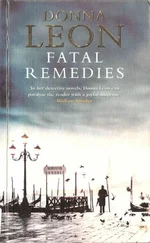“Where did we all get the idea that your great-grandfather lost everything at the casinò ?” she surprised her father by asking. Both her parents stared at her, but neither of them asked her if she had been paying attention to what they were saying, so obvious was it that she had not.
Her father ran both hands through his still thick hair, something he did when he wanted time to think. Her mother, as she always did when things didn’t go as she had planned, put more food on their plates. Everyone in the family except her mother and Cinzia ate like wolves and never changed weight by a gram. “All I have to do is look at a carrot and I weigh a kilo more the next day” was her mother’s mantra.
“I don’t know,” her father said, not about the carrot that played so frequent a role in his wife’s conversation, but about the question Caterina had just asked him. “It’s family legend. People used to talk about it when we were kids, and I talked about it with Giustino and Rinaldo.”
“Did anyone ever check to see if it was true?” she asked.
Her mother gave Caterina a startled glance, but her father smiled and said, “No, I suppose we never thought about doing that.”
“Why?” Caterina asked.
He considered her question for a while and smiled again. “Probably because it sounded so romantic and so Venetian—palazzo lost at cards, gambling away the family fortune.”
“What do you think really happened?”
He shrugged. “I suppose what usually happens. My great-grandfather wasn’t good with money, wouldn’t listen to his wife, and lost it all.”
Her mother broke in to say, “It’s how we like to think of ourselves.”
“We?” Caterina asked.
“Veneziani. Gran signori, ” she said, quoting the tag line of a common saying that defined Venetians.
“But instead?” she asked.
“Cati,” her mother said, “you haven’t been away so long you’ve forgotten. We love to make a deal and beat someone else out of something.”
“But you don’t and Papà doesn’t,” she said, knowing this was true.
Neither of her parents said anything for some time until she put her spoon down and admitted, “All right, all right. You don’t, but most of us do.”
“Do you?” her mother asked, as if she had just shown some sympathy for child prostitution or the MOSE project.
“No, I don’t think I do,” she answered.
Before things could grow more complicated, her mother said, “You’ve got twelve minutes to get the boat at San Marcuola, Cati.” She hadn’t looked at her watch, hadn’t asked the time, she simply knew .
Hurried kisses, promises to call the next day, and every day, her mother’s insistence that it made no sense for her to live all the way down in Castello when she had a perfectly good home to stay in, and then she was out of the house and on her way to the boat stop.
Her feet knew the way—out the door and right along the canal, then left over the bridge, and stop thinking about it and let your feet do it for you, then nine minutes later she walked out in front of the church of San Marcuola, where, she reminded herself, Hasse’s tomb was hard to find, and straight to the boat stop. She took out her imob and pressed it against the sensor, heard the blip of acceptance, then walked into the lighted embarcadero .
And there he was, the man who had followed her from the Foundation. He sat on the bench to the left-hand side, his legs stretched out in front of him, feet crossed at the ankles. His arms were crossed over his chest, and he looked like any person sitting and waiting for the vaporetto to arrive. He glanced up at her and, though he noticed her, there was no sign of recognition on his part, just as there had been none when he’d looked at her on the street some hours before.
She opened her bag and slipped her imob into the inside pocket, walked past him to the front of the dock, turned right, and looked up the Grand Canal. The boat was a hundred meters away, clearly visible in the brightly lit canal. Its headlight approached. What did she do if he got on the boat with her? Ignore him and get off at Arsenale and then walk home? There were sure to be people on the street, but perhaps not on the small calle where the apartment was. She could call the police, but what if he didn’t get off the boat when she did? The boat came and she got on, went into the cabin, and took an aisle seat on the left side, where she could see who got on after her. He did not.
As the sailor flipped the rope loose, she waited for the man to make a sudden move and jump on the departing boat at the last minute, but he didn’t. The boat started forward. She turned to the left and saw him still sitting there, legs comfortably stretched out in front of him, arms folded. As she moved past him, he continued to look at her, expression unchanged.
She looked forward. She felt something sting her eye, and when she placed her hand on it, she felt the perspiration that had run down her face and soaked her hair. It took almost a half hour to get to Arsenale, and Caterina was glad of it, for she had time to talk herself into a state of calm.
The boat pulled in, the sailor tossed the rope and wrapped it around the stanchion, and five or six people lined up to leave the boat. She put herself in the middle of them, matching her pace to theirs. Careful to stay behind an elderly couple who walked slowly ahead of her, she followed them off the boat and down to Via Garibaldi until she came to the street where she was living, Calle Schiavona. She paused, but only minimally, at the corner. The key to the front door had been in her hand since the boat had begun to slow for the stop.
The house was along on the left. She reached the door, put the key in the lock, and let herself into the entrance. She turned on the light and walked to the top floor, then let herself into the apartment. She walked through it, turning on all of the lights one after the other. When she was sure she was alone in the apartment—though she tried not to think of it in those terms—she went into the bathroom and was violently sick into the toilet. She washed her face and rinsed her mouth, went into the kitchen and made herself a cup of chamomile tea, and took it back to the living room.
Sleep, she knew, was impossible. She sat on the sofa and picked up the second of the books about Steffani she had taken from the library.
The story recounted so captivated her that she soon forgot about feeling sick, drank the tea, went and made more, and returned to the book. She read a few more pages, went into the kitchen and ate a few dry crackers, drank more tea, then returned to the book.
In 1694, the movie-star handsome—she liked this anachronistic description—Count Philip Christoph von Königsmarck disappeared overnight from the castle of Ernst August, the duke of Hanover and Steffani’s patron. He disappeared, she read, “into thin air.”
It was subsequently rumored that he had been killed on the orders of someone, and even though the official version always remained that he had simply gone missing, nothing could prevent it from becoming the greatest scandal of the time. There were a few candidates for the role of killer, or sender, first among whom was Duke Ernst August himself, who objected to the openness of Königsmarck’s affair with his daughter-in-law, the beauty of the century, Princess Sophie Dorothea.
With the entrance of a second double-barreled Sophie, Caterina was forced to flip back to the genealogical chart at the beginning of the book. The Sophie Charlotte whom Steffani corresponded with and of whose friendship he was so proud was the sister-in-law of this second Sophie. The betrayed husband was Georg Ludwig, the future king George I; his adulterous wife, Sophie Dorothea, was also his first cousin. She had been a desirable catch because of her beauty and charm and, not incidentally, because of the hundred thousand thalers a year that came with her.
Читать дальше












